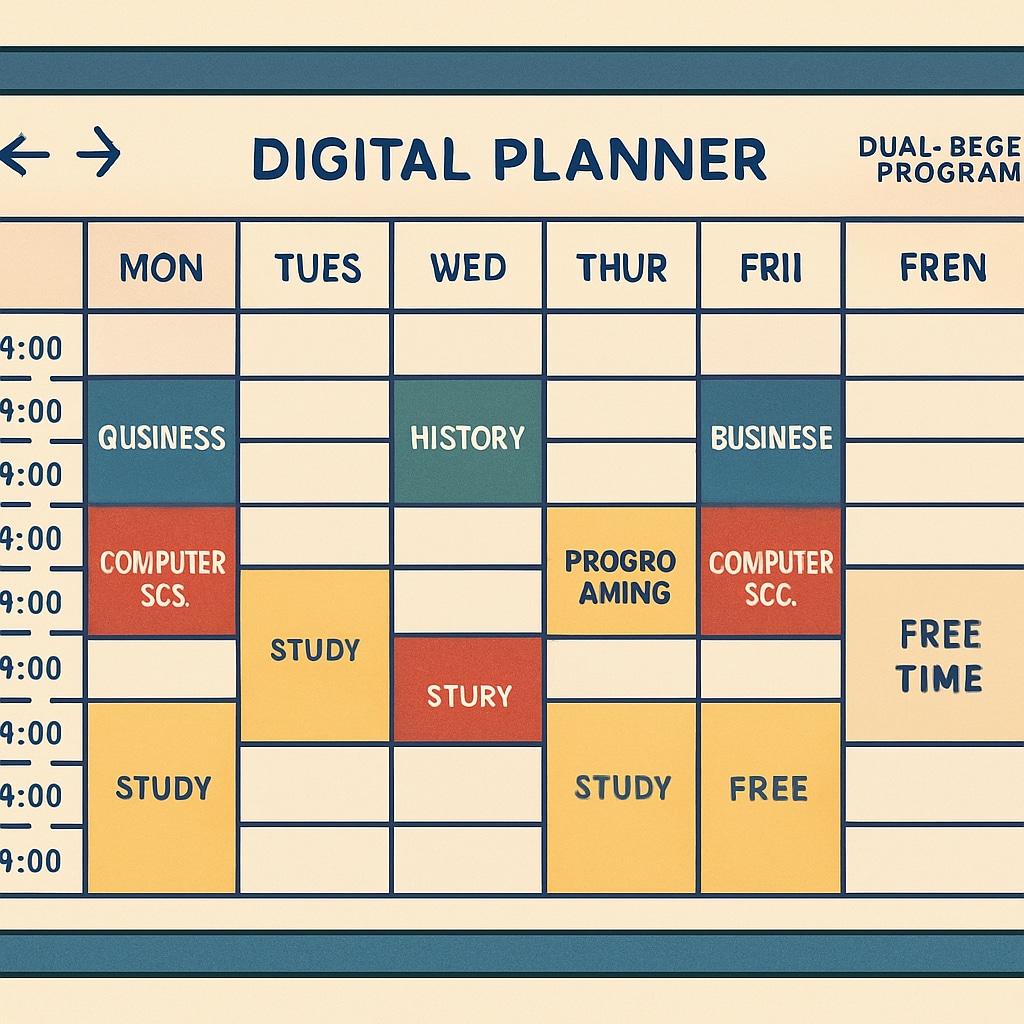Pursuing a degree in mechanical engineering is undoubtedly demanding, but adding a second degree into the mix can be a strategic move for students who aim to broaden their career prospects. Whether through traditional courses or online programs, combining mechanical engineering with disciplines such as business, computer science, or economics offers unique advantages. However, it also requires meticulous time management and clear career planning to succeed.

The Value of a Dual Degree in Mechanical Engineering
Mechanical engineering provides a robust foundation in problem-solving, technical knowledge, and innovation. However, the modern job market increasingly demands professionals with interdisciplinary skills. Pursuing a dual degree not only diversifies your expertise but also enhances adaptability in industries ranging from automotive to aerospace.
For example, pairing mechanical engineering with computer science equips students with the skills to work on cutting-edge developments such as robotics and artificial intelligence. On the other hand, combining it with business or economics can prepare students for leadership roles or entrepreneurial ventures.
Popular Second Degree Options
Choosing the right second degree depends on your interests and career goals. Here are some of the most popular complementary fields:
- Business: Ideal for students interested in management, entrepreneurship, or consulting. This combination provides insights into finance, marketing, and organizational strategies.
- Computer Science: A strong choice for those aiming to work in automation, software development, or data analysis.
- Economics: Offers valuable skills in market analysis, forecasting, and resource management, which are applicable across multiple industries.
- Physics: Deepens theoretical understanding and opens doors to research-intensive roles or academia.
These fields align well with mechanical engineering and provide opportunities to innovate and lead in multidisciplinary environments.
Balancing Time and Workload
One of the biggest challenges of pursuing a dual degree is managing the workload. Effective time management is critical to balance coursework, projects, and extracurricular activities. Students can benefit from the following strategies:
- Plan your schedule meticulously by using digital tools like calendars and task organizers.
- Prioritize tasks based on deadlines and difficulty levels to avoid last-minute stress.
- Explore online degree programs that offer flexibility and allow you to study at your own pace.
- Communicate regularly with advisors to ensure your academic goals align with your workload capacity.
For more insights, consider exploring resources like Time Management on Wikipedia or Time Management on Britannica.

Career Planning with a Dual Degree
Pursuing a dual degree is not just about academic achievement; it’s a strategic investment in your future career. Students should consider the following tips for maximizing their dual-degree experience:
- Define clear career goals early to ensure your chosen combination aligns with your aspirations.
- Network with professionals across both disciplines to gain insights into industry demands and trends.
- Seek internships or research opportunities that allow you to apply knowledge from both degrees.
- Leverage career services for resume building and interview preparation tailored to interdisciplinary roles.
As a result, graduates with dual degrees often stand out in competitive job markets and have access to a broader range of opportunities.
Conclusion: Is a Dual Degree Right for You?
While the prospect of managing two degrees simultaneously may seem daunting, the long-term benefits often outweigh the challenges. Combining mechanical engineering with a second field like business, computer science, or economics can open doors to innovative roles and leadership positions. With careful time management, online learning options, and strategic career planning, students can make the most of this multifaceted educational path.
If you’re considering this route, take the time to evaluate your interests, resources, and long-term goals. A dual degree is not just an academic endeavor—it’s a leap toward a more versatile and fulfilling career.


